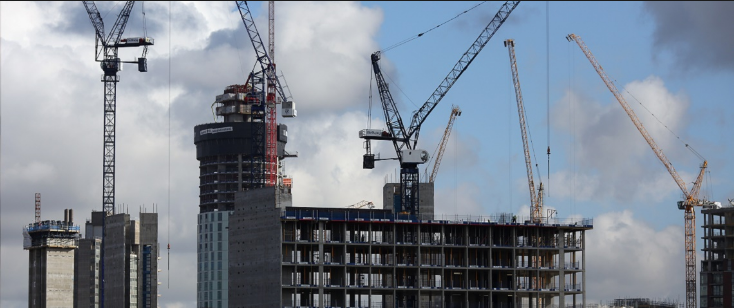Vegas Apartment Buying-Palooza
Developers are reading the tea leaves and have put the pedal to the for-rent metal, as I mentioned recently. Build them and they will rent, and then Blackstone will buy. After all, CNBC reports that 80 percent of millennials would like to buy a home, and a majority say that it's part of their five-year plan (who has a 5-year plan?). However, 68 percent don’t have even $1,000 saved, while 44 percent haven’t saved a nickel, according to new data from Apartment List.
Eli Segall reports for the Las Vegas Review Journal today, “The Blackstone Group, a New York investment giant that’s been snapping up Las Vegas real estate for several years, last Thursday acquired the 466-unit Elysian West in the southwest valley for $106.5 million — a record price for Las Vegas, according to the seller.” That’s $228,540.77 per unit. Good grief, maybe that is a record.
But that’s not all, following Blackstone in the two day apartment-buying palooza were Northern California’s DiNapoli Capital Partners picking up the 404-unit Palms at Peccole Ranch on Charleston Boulevard near Hualapai Way for $62 million, New York-based Abacus Capital Group purchasing the 237-unit Sterling Court near Russell Road and U.S. Highway 95 for $24 million, and finally, Arizona-based Farnam Realty buying the 430-unit Veritas complex at St. Rose and Maryland Parkway for $76.5 million on Friday.
That’s $269 million for 1,537 units or $175,016.27 per unit. Back in the dark days of 2011 apartment buyers paid an average of $37,000. This year, 2017, until August 1st, the going prices was $105,100. “DiNapoli paid 36 percent above what Waterton spent for the complex in 2013, property records show DiNapoli paid 36 percent above what Waterton spent for the complex in 2013,” writes Segall.
This all sounds bubblicious, but then a guy as smart as Sam Zell tells Barron’s/Wall Street Journal,
For 20-some-odd years, our nation has built over a million single-family homes a year. In the Great Recession, it was down to 400,000. Now it’s 800,000. There’s a significant shortage of new single-family houses, but also a shortage of demand. That has increased demand for multifamily. Until the past 18 months, there was no new significant supply of multifamily. In 2017, the U.S. will build 387,000 multifamily units, the most since maybe the early ’70s. It’s affecting everywhere. New York, San Francisco, Seattle, and Washington, D.C., have such significant inbred demand that it will continue to balance out. I don’t know about other places in the country. Miami has got as many multifamily units under construction now as before the Great Recession, except demand from Brazilians and Venezuelans has slowed because of currency depreciation and recessions in those countries. Chicago has almost unlimited land. New York and Seattle are a bunch of islands, San Francisco is a tiny little city. That isn’t the case in Dallas, Houston, Raleigh-Durham, N.C., or Atlanta.
When asked about social themes that affect markets, he said,
Deferral of marriage is one. When I graduated college, I got married 10 days later, and a year later, 95% of the people around me were married and had moved to Tic-Tac-Ville. Forty years ago,Motorola built a campus in Chicago’s northwest suburbs. They hired engineers out of school who bought single-family homes nearby. That campus now is empty. When Equity Residential went public in 1993, our portfolio was all garden apartments in the suburbs. Today, it is all high-rises in 24/7 cities. Today’s graduates don’t even think of getting married until their late 20s, early 30s. They want urban living in 24/7 cities. They want optionality. That doesn’t just impact real estate; it’s eight more years of disposable income and social networking. Social networks have opened more eyes to what’s out there, and the more people open their eyes, the less they are willing to commit.
Sam has a new book, “Am I Being Too Subtle?” He’d never be accused of that and if apartments were terribly overbuilt, he’d say so.







